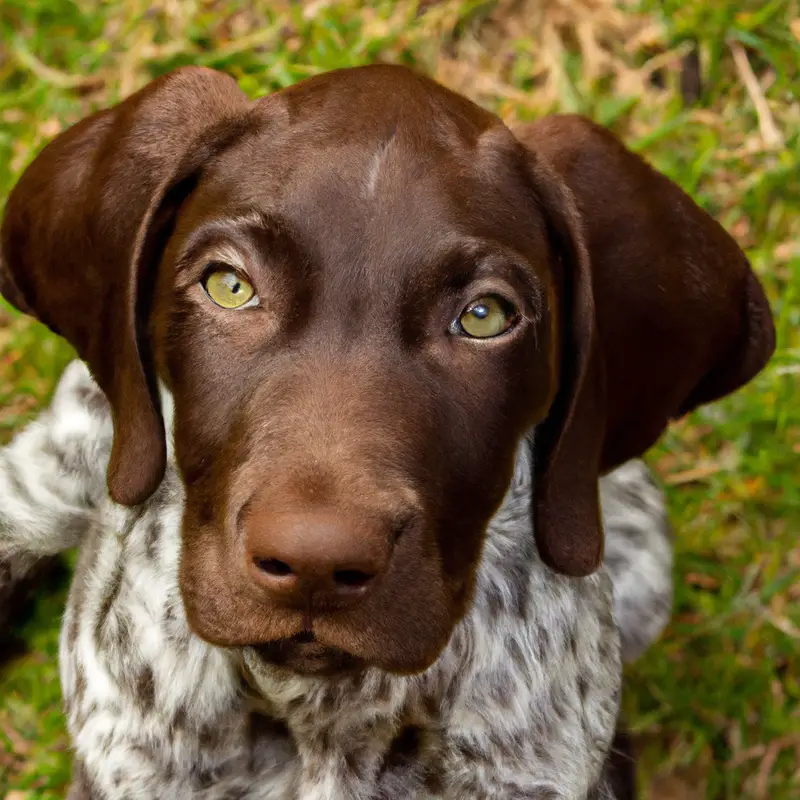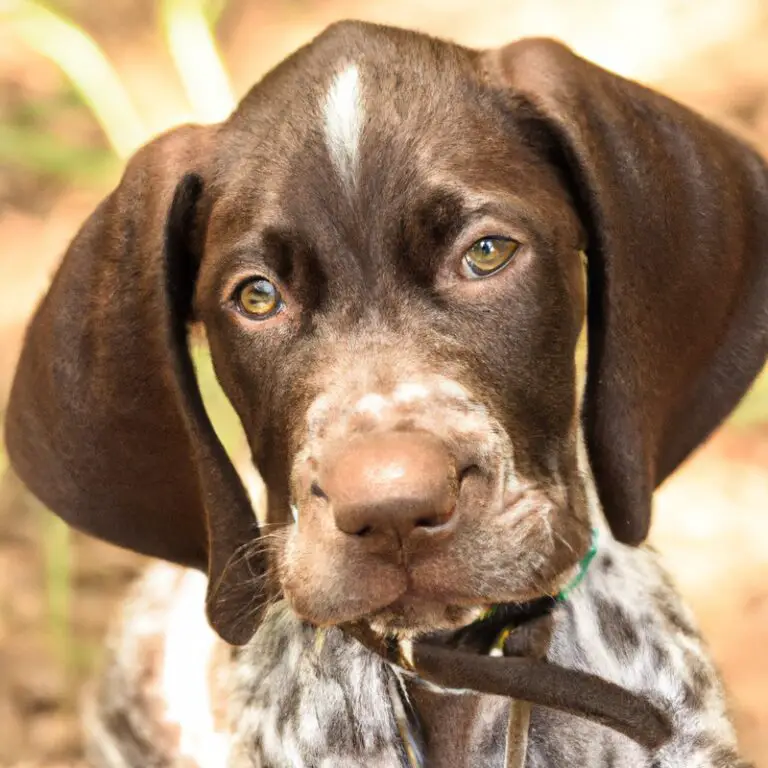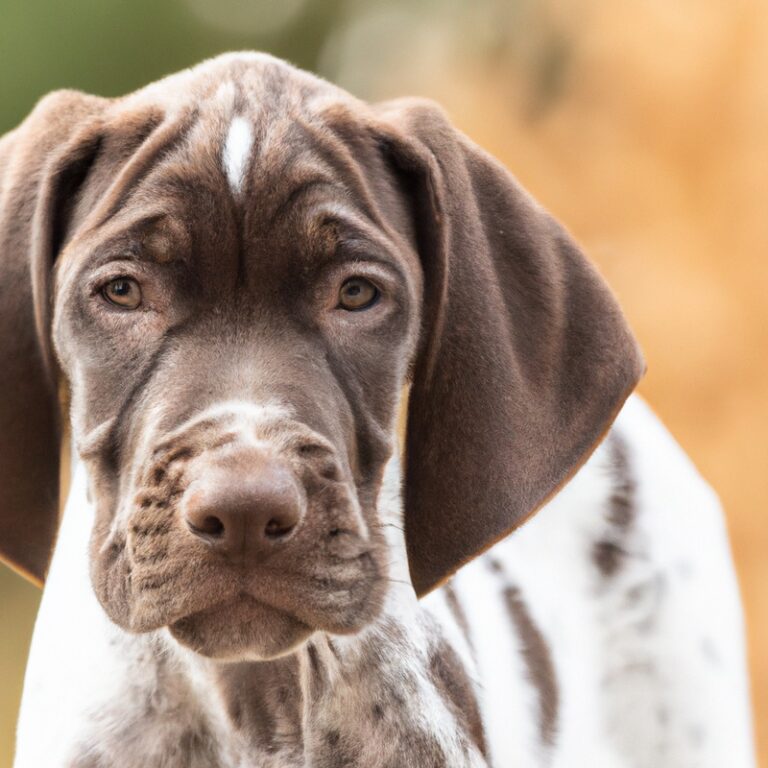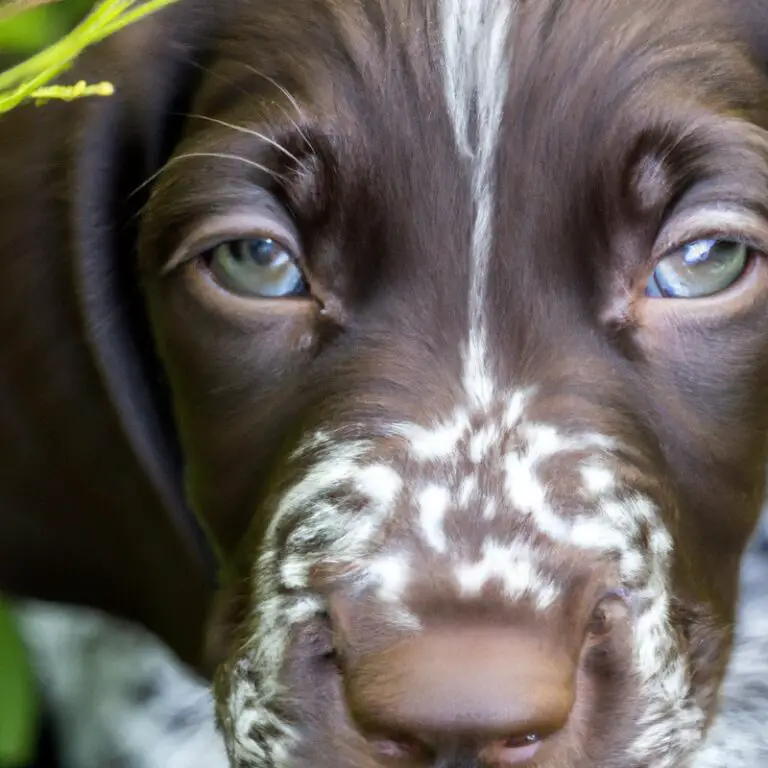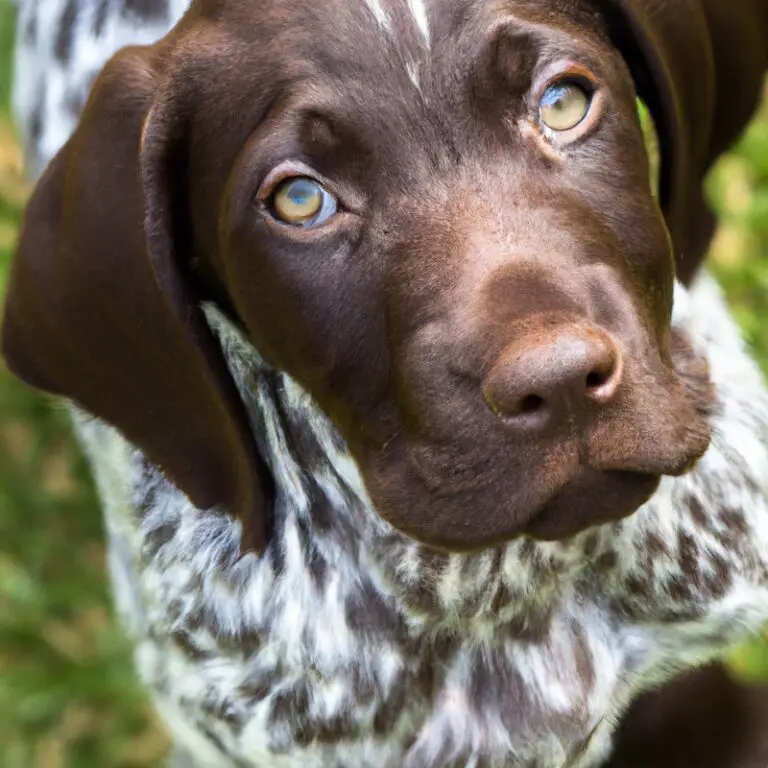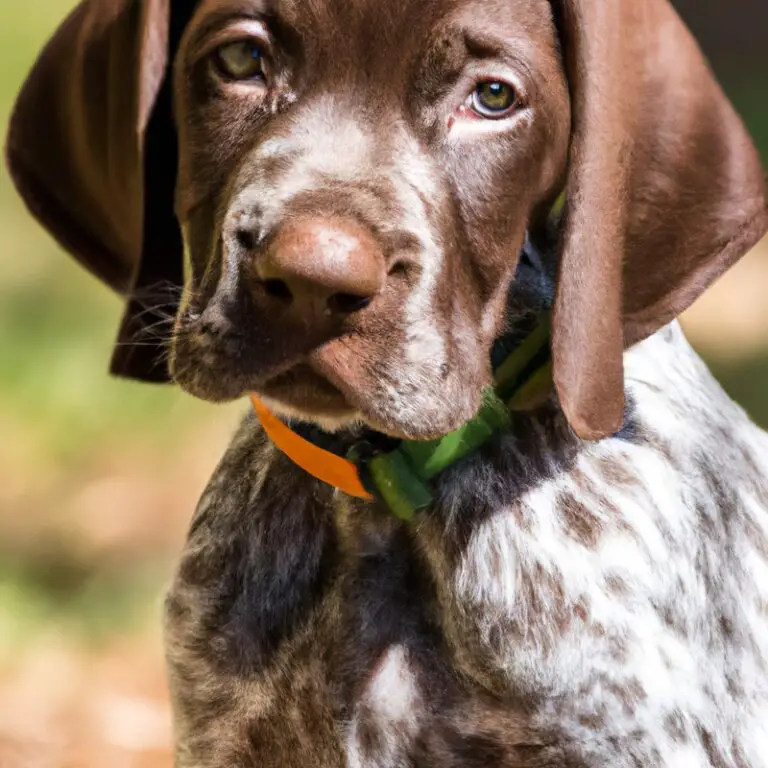What Is The Ideal Age To Start Training a German Shorthaired Pointer Puppy?
Key Takeaways:
- The ideal age to start training a German Shorthaired Pointer puppy is between 8 and 12 weeks old.
- Early socialization and basic obedience training are crucial for a German Shorthaired Pointer puppy’s development.
- Consistency and positive reinforcement are key when training a German Shorthaired Pointer puppy.
- Training should focus on teaching essential commands and appropriate behavior to ensure a well-rounded and obedient adult dog.
Are you wondering when to begin training your German Shorthaired Pointer puppy? Well, you’ve come to the right place! As an expert in German Shorthaired Pointers, I have seen firsthand the importance of starting training at the right age.
In this article, we will explore the factors to consider when deciding the ideal age for training, the different milestones in puppy training, socialization techniques, effective training tips, common challenges, advanced training options, as well as the benefits of hiring a professional trainer.
So, let’s dive in and ensure you set your puppy up for success!
| Age Group | Activities |
|---|---|
| 6-8 weeks | Socialization with other dogs and people, basic obedience training |
| 8-12 weeks | Potty training, crate training, leash training, introduction to basic commands |
| 3-6 months | More advanced obedience training, introduction to hunting exercises |
| 6-12 months | Continued obedience training, field training, introduction to retrieving exercises |
| 12+ months | Advanced training, formal hunt training, participation in hunting trials and competitions |
Factors to Consider When Deciding the Ideal Age for Training a German Shorthaired Pointer Puppy
Physical Development Stage of German Shorthaired Pointer Puppies
German Shorthaired Pointer puppies go through various physical development stages as they grow. Understanding these stages can help you provide appropriate care and training for your furry friend.
During the first few weeks, puppies rely on their mother’s milk for nutrition, and their eyes and ears begin to open.
As they reach around 3-6 months, their adult teeth start coming in and they experience rapid growth. By the time they reach 1 year, German Shorthaired Pointers have typically reached their full size and physical maturity.
It’s important to be mindful of these stages and adjust their care accordingly for their overall well-being.
Cognitive Development Stage of German Shorthaired Pointer Puppies
German Shorthaired Pointer puppies go through different stages of cognitive development as they grow. During the early weeks, they rely mostly on their instincts and senses to explore their environment.
As they approach 8 to 12 weeks, their cognitive abilities start to develop further.
At this stage, German Shorthaired Pointer puppies show increased curiosity and are more attentive to their surroundings. They become more receptive to learning and are eager to please their owners.
It is an ideal time to start introducing basic training commands and socialization.
During the next few months, between 3 to 6 months of age, their problem-solving skills and ability to understand cause and effect begin to improve. They become more independent and may test boundaries.
Consistent training and positive reinforcement are essential at this stage to ensure they develop into well-behaved adult dogs.
Between 6 to 12 months, German Shorthaired Pointer puppies reach adolescence, where they may exhibit some challenging behaviors. This is a crucial stage for continued training and reinforcement of commands, as they are still learning how to control their impulses and emotions.
Understanding the cognitive development stages of German Shorthaired Pointer puppies can help you determine the ideal age to start training and provide them with the necessary mental stimulation they need to become well-rounded adult dogs.
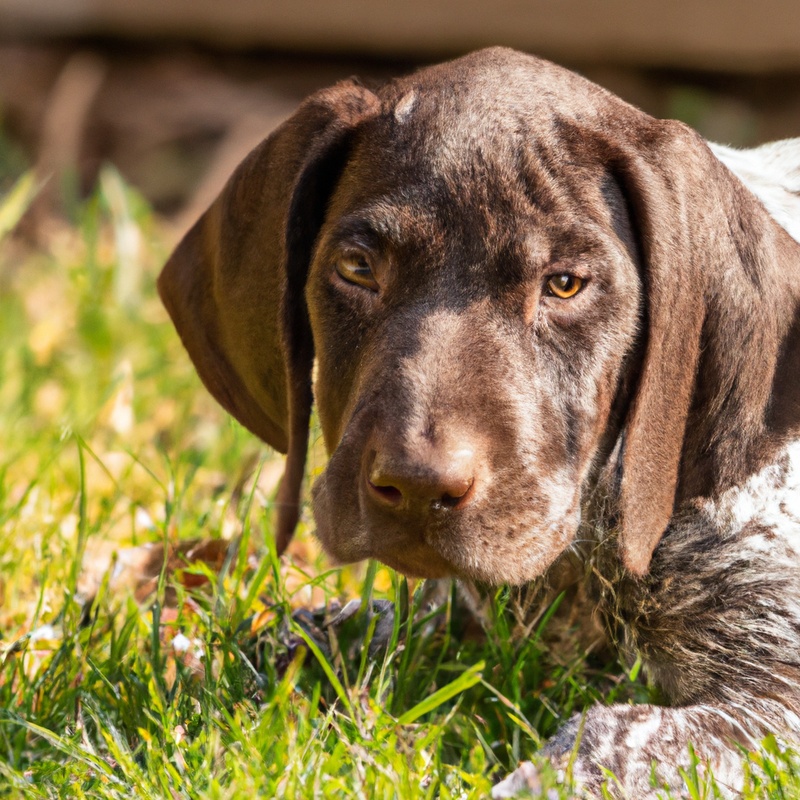
Puppy Training Milestones for German Shorthaired Pointers
Basic Obedience Training for German Shorthaired Pointer Puppies
Basic obedience training for German Shorthaired Pointer puppies is vital for their overall development and well-being. Here are a few key aspects to keep in mind when training your GSP pup:
- Socialization: Start socializing your puppy early on. Introduce them to various people, animals, and environments to help them become well-adjusted and friendly.
- House Training: Teach your puppy where to eliminate. Establish a routine and take them outside regularly. Praise them when they go in the right place to reinforce good habits.
- Basic Commands: Begin teaching your GSP puppy basic commands like sit, stay, come, and down. Use positive reinforcement, such as treats and praise, to motivate and reward their good behavior.
- Leash Training: Get your puppy used to wearing a collar and walking on a leash. Start with short, controlled walks, and gradually increase the duration and difficulty.
- Consistency and Patience:
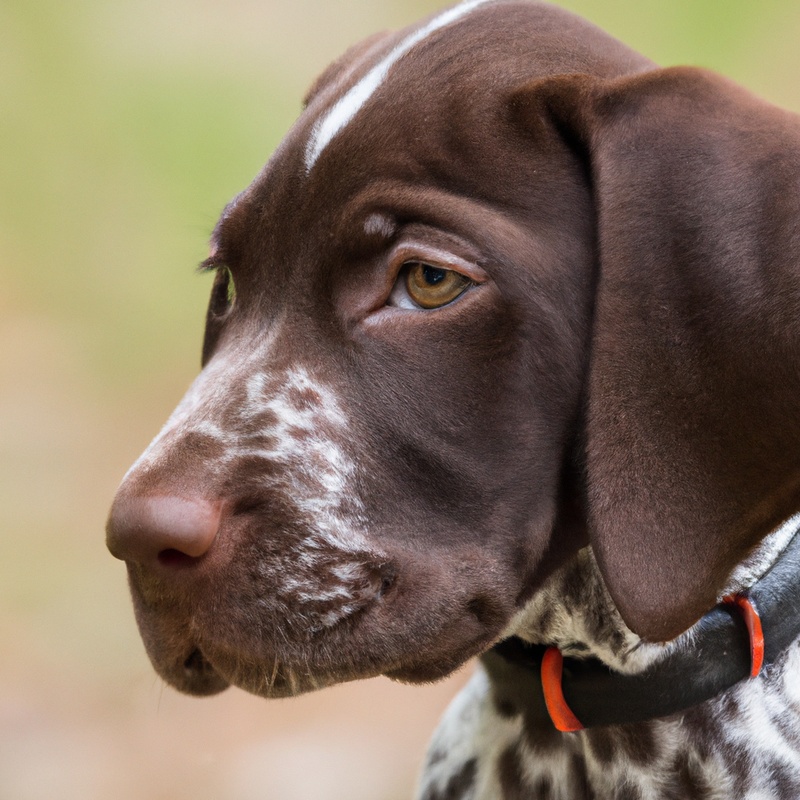
Crate Training and Housebreaking for German Shorthaired Pointers
Crate training and housebreaking are two important aspects of raising a German Shorthaired Pointer puppy. First and foremost, crate training helps create a safe and comfortable den-like space for your puppy.
It also aids in housebreaking by teaching your puppy to hold their bladder and bowels until they are outside.
To start crate training, choose a crate that is the right size for your dog. Make sure it is big enough for them to stand up, turn around, and lie down comfortably.
Place bedding and toys inside to make it cozy and inviting.
Next, introduce your puppy to the crate gradually. Offer treats and praise when they explore or enter the crate willingly.
Never force them inside or use the crate as a form of punishment.
For housebreaking, establish a consistent routine. Take your puppy outside to their designated potty spot after meals, naps, playtime, and every few hours.
Use a command like “go potty” to associate the act with a specific cue.
When your puppy does their business outside, reward them with treats and praise. If accidents happen indoors, clean it up without scolding or punishing your puppy.
Consistency, patience, and positive reinforcement are key to successful housebreaking.
By implementing crate training and housebreaking techniques, you can set your German Shorthaired Pointer puppy up for a lifetime of good habits and a well-behaved companion.
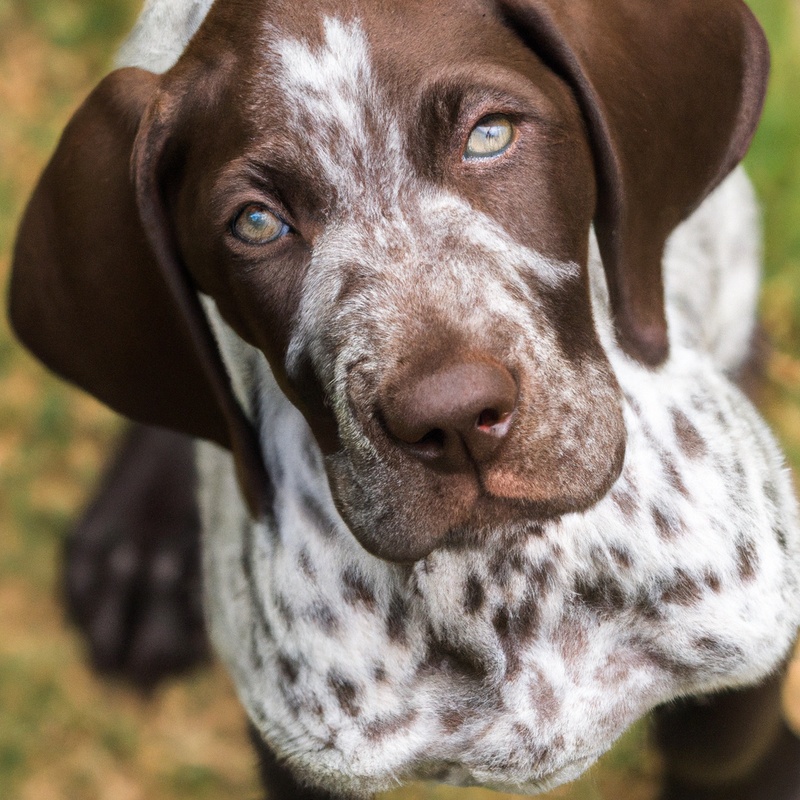
Socialization and German Shorthaired Pointer Puppies
Early Socialization for German Shorthaired Pointer Puppies
Early socialization plays a key role in the development of German Shorthaired Pointer puppies. It is important to expose them to various people, animals, and environments from an early age.
This helps them become well-rounded and adaptable dogs.
By introducing them to different situations, sounds, and experiences, you can help prevent fear or aggression issues later in life. Positive reinforcement and gentle exposure are key during this crucial stage.
Exposure to Different Environments and Stimuli for German Shorthaired Pointer Puppies
Exposing German Shorthaired Pointer puppies to different environments and stimuli is crucial for their development. First and foremost, it helps them become more adaptable and confident when facing new situations.
By introducing them to various places like parks, busy streets, and different types of surfaces, such as grass and pavement, you can help them become well-rounded dogs.
Additionally, exposing them to different stimuli like different sounds, objects, and people can help prevent fearfulness and anxiety later on. Experiences like meeting friendly strangers, hearing loud noises, and encountering unfamiliar objects can all contribute to their socialization and overall well-being.
So, make sure to gradually expose your German Shorthaired Pointer puppy to a wide range of environments and stimuli to help them grow into a confident and balanced adult dog.
Training Tips and Techniques for German Shorthaired Pointer Puppies
Positive Reinforcement Training Methods for German Shorthaired Pointer Puppies
Positive reinforcement training methods are highly recommended for German Shorthaired Pointer puppies. These methods focus on rewarding good behavior rather than punishing bad behavior.
First and foremost, it is important to use treats or praise as rewards whenever your puppy performs a desired behavior, such as sitting or staying.
By consistently rewarding these behaviors, your puppy will learn to associate them with positive outcomes. Another effective training technique is clicker training.
This involves using a clicker device to mark the exact moment when your puppy performs a desired behavior, followed by a treat as a reward.
This helps to reinforce the connection between the behavior and the reward. Consistency is key in positive reinforcement training.
Ensure that everyone in the household follows the same rules and rewards the same behaviors.
This will help your puppy learn faster and avoid confusion.
Leash Training and Recall Training for German Shorthaired Pointer Puppies
Leash training and recall training are two important aspects of training your German Shorthaired Pointer puppy. When it comes to leash training, start early.
Introduce the leash gradually, allowing your puppy to get used to wearing it before you begin walking.
Use positive reinforcement and rewards to encourage them to walk calmly beside you. Recall training is also crucial for your puppy’s safety.
Start by teaching them their name and rewarding them when they respond to it.
Then, gradually introduce the “come” command and reward them when they come to you. Practice recall training in safe, controlled environments before moving to more distracting areas.
Common Training Challenges with German Shorthaired Pointer Puppies
Separation Anxiety and German Shorthaired Pointers
Separation anxiety can be a common issue with German Shorthaired Pointers. These pups are known to form strong bonds with their owners and can become stressed when left alone.
To help alleviate separation anxiety, it’s important to gradually get your GSP puppy used to being alone.
Start by leaving them alone for short periods of time and gradually increase the duration. Providing plenty of mental and physical exercise before leaving can also help tire them out and reduce anxiety.
Creating a safe and comfortable space for your GSP while you’re away can also make a big difference.
Use toys, treats, and familiar bedding to make them feel secure. Additionally, leaving a radio or TV on for background noise can help provide a sense of company.
Excessive Barking and German Shorthaired Pointers
Excessive barking can be a challenge with German Shorthaired Pointers. These energetic and intelligent dogs have a natural instinct to vocalize, but it can become a problem if it happens too often or at inappropriate times.
Understanding the reasons behind their barking is key to addressing this behavior.
One common reason for excessive barking is boredom or lack of exercise. German Shorthaired Pointers are active dogs that require regular physical and mental stimulation.
Make sure your pup gets plenty of exercise and playtime to help alleviate their need to bark.
Another reason for excessive barking is separation anxiety. This breed is known to form strong bonds with their owners and can become anxious when left alone.
Gradually accustom your puppy to being alone for short periods of time, and provide them with interactive toys or puzzles to keep them occupied.
Socialization is also important to prevent excessive barking. German Shorthaired Pointers should be introduced to various people, animals, and environments from a young age.
This exposure helps them feel more comfortable and less likely to bark out of fear or territorial behavior.
Consistency and positive reinforcement are crucial when addressing excessive barking. Reward your puppy when they remain quiet and calm, and redirect their attention to more appropriate behaviors if they start barking excessively.
Avoid shouting or punishing, as it may worsen the problem.
Remember that excessive barking can take time and patience to address. If the problem persists or worsens, it may be helpful to consult a professional dog trainer or behaviorist for additional guidance and support.
Advanced Training for German Shorthaired Pointer Puppies
Agility Training for German Shorthaired Pointer Puppies
Agility training for German Shorthaired Pointer puppies is a fantastic way to keep them active and engaged. Here are a few important things to keep in mind when it comes to agility training:
- Start slow: Introduce your puppy to agility obstacles gradually, allowing them to become comfortable with each one before moving on to the next.
- Use positive reinforcement: Reward your puppy with praise, treats, and playtime when they successfully complete an obstacle or follow a command. It helps to keep their motivation high.
- Keep sessions short: Puppies have short attention spans, so keep your training sessions brief and fun. This will help them stay focused and prevent them from getting overwhelmed.
- Focus on foundation skills: Teach your puppy basic commands like sit, stay, and come as a foundation for their agility training. These skills will help them navigate the obstacles more effectively.
- Safety first: Ensure that the agility equipment is safe for your puppy to use and that the training area is secure. Consult with a professional trainer or join a puppy agility class to learn the proper techniques and ensure your puppy’s safety.
Advanced Obedience Commands for German Shorthaired Pointer Puppies
When it comes to advanced obedience commands for German Shorthaired Pointer puppies, there are a few key commands that are especially important. First and foremost, teaching your puppy to “sit” and “stay” is crucial for their safety and well-being.
Practice these commands in various environments and gradually increase the distractions to ensure their obedience.
Another crucial aspect of advanced training is teaching your German Shorthaired Pointer puppy to “come” on command. This command is essential for off-leash control and can be a lifesaver in emergency situations.
Practice the recall command in a controlled environment before gradually introducing distractions.
In addition to the basic commands, you can also consider teaching your puppy more advanced obedience commands like “heel,” “down,” and “leave it.” These commands enhance their overall obedience and can be helpful in real-life situations. Remember to be patient and consistent in your training.
Always use positive reinforcement techniques such as treats and praise to motivate your puppy.
By implementing these advanced obedience commands, you can have a well-behaved and obedient German Shorthaired Pointer companion.
Hiring a Professional Trainer for German Shorthaired Pointer Puppies
Reasons to Consider Hiring a Professional Trainer for German Shorthaired Pointers
If you’re thinking about getting a German Shorthaired Pointer puppy, you may want to consider hiring a professional trainer to help you out. Here’s why:
- Expertise: Professional trainers have the knowledge and experience to train your German Shorthaired Pointer effectively. They understand the breed’s specific needs and can tailor their training methods accordingly.
- Consistency: Training a puppy requires consistency, and professional trainers can provide that. They will establish a structured training routine and ensure that your puppy receives consistent guidance and reinforcement.
- Socialization: German Shorthaired Pointers are social dogs, but they need proper socialization to develop good behavior around people and other animals. Professional trainers can help expose your puppy to different environments, experiences, and social situations.
- Problem-solving: If your puppy develops behavioral issues or challenges during the training process, a professional trainer can step in and help you address them effectively. They have the skills to identify problems and provide solutions.
- Time-saving: Training a puppy is a time-consuming task. By hiring a professional trainer, you can save yourself valuable time and energy. They can accelerate the training process and teach your puppy skills and behaviors more quickly.
How to Choose the Right Trainer for Your German Shorthaired Pointer Puppy
When it’s time to choose a trainer for your German Shorthaired Pointer puppy, there are a few things to consider. First and foremost, make sure the trainer has experience specifically with this breed.
German Shorthaired Pointers are intelligent and energetic, so you’ll want someone who knows how to handle their unique needs.
Next, look for a trainer who uses positive reinforcement methods. This means they reward good behavior instead of using punishment or harsh methods.
Positive reinforcement has been proven to be effective and helps build a strong bond between you and your puppy.
Additionally, consider the trainer’s credentials and reputation. Look for certifications or memberships with reputable dog training associations.
It’s also a good idea to read reviews or ask for recommendations from other dog owners.
Lastly, trust your instincts. Meet with the trainer and see if you feel comfortable and confident in their abilities.
Choosing the right trainer for your German Shorthaired Pointer puppy is an important decision that can set the foundation for a well-behaved and happy dog.
So take your time, do your research, and find someone who understands and appreciates this wonderful breed.
Final Verdict
Determining the ideal age to start training a German Shorthaired Pointer puppy requires careful consideration of their physical and cognitive development stages. Early socialization and exposure to various environments are crucial for their well-rounded development.
Positive reinforcement training methods, leash training, and recall training are effective techniques for teaching obedience.
It’s important to address common challenges such as separation anxiety and excessive barking. Advanced training, like agility and advanced obedience commands, can further enhance their skills.
Finally, hiring a professional trainer can provide expert guidance and support.
By following these guidelines, you can ensure a successful training journey for your German Shorthaired Pointer puppy. It’s important to remember that each puppy is unique, so be patient, consistent, and always prioritize their well-being and happiness.

